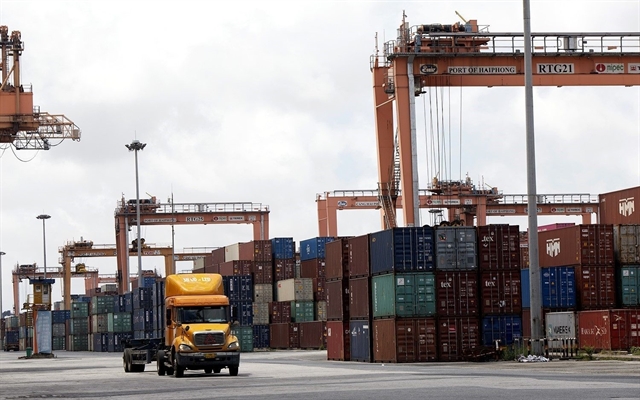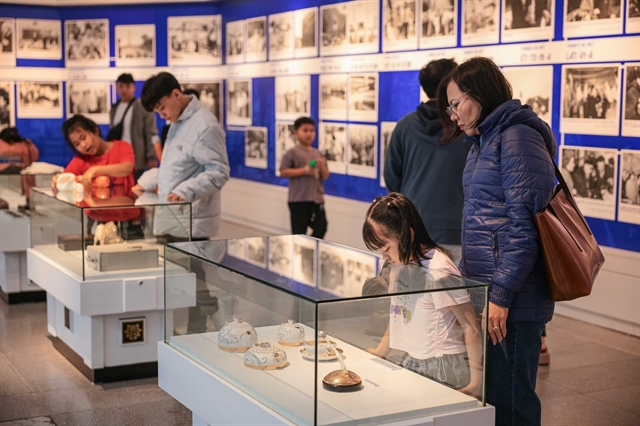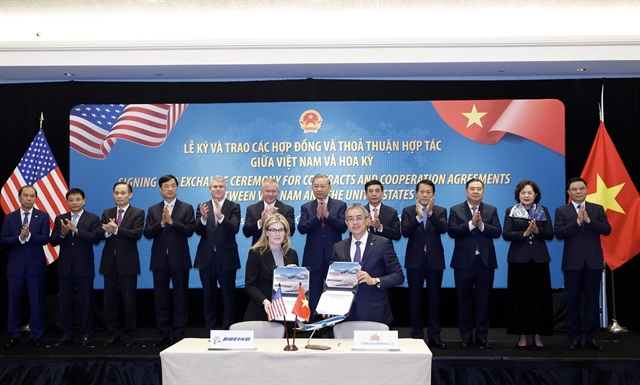 Opinion
Opinion

 |
| Alicia Corredera, Director of the Asia Department at the Cuban Institute of Friendship with the Peoples. VNA/VNS Photo |
HAVANA — The victory on April 30, 1975 was not only Việt Nam’s own but also the common joy of the peoples fighting for justice, stated Alicia Corredera, Director of the Asia Department at the Cuban Institute of Friendship with the Peoples (ICAP) in an interview with Vietnam News Agency on the occasion of the 50th anniversary of the historic milestone.
In April 1975, Alicia, who was a student of the Vietnamese language department at Hà Nội University, said that there was a sudden surge of life as soon as the name “Việt Nam” was mentioned. Old black-and-white photographs, faded letters, and mementos seemed to come alive.
Alicia recounted how a worn-out radio in the international student dormitory became the shared heartbeat of many. In the final days of April 1975, the radio broadcasts constantly transmitted news about the "swift advance" of the liberation forces, interspersed with the stirring melodies of songs like “Marching to Sài Gòn” and “Liberation of the South.” She vividly remembered the faces of Vietnamese students, filled with both hope and sorrow, as the country was nearing the end of its division after 30 years.
The day of victory arrived with the announcement of the fall of Sài Gòn. At noon on 30 April 1975, Radio The Voice of Việt Nam declared the success of the military campaign, sharing that at 11:30am, Vietnamese forces had entered Saigon, captured the Independence Palace, and forced Dương Văn Minh to surrender unconditionally. The flag of Việt Nam flew atop the palace. The victory of the Hồ Chí Minh Campaign was complete.
Alicia recalled the emotional response of the students—an outpouring of joy and tears. The atmosphere in the classroom was charged with a profound sense of solidarity and shared victory. There was no need for words, as everyone instinctively understood that "Việt Nam is one, and the Vietnamese people are one."
Inspired by this sense of unity, students from Cuba, the former Soviet Union, Bulgaria, Poland, Romania, Japan, and other countries began to hold hands and celebrate together, chanting in multiple languages - Spanish, Russian, and Vietnamese - expressing their joy for the victory as if it were their own.
A special moment of celebration followed, with a group of Cuban students joining the Hồ Chí Minh Volunteer Experts and heading to the Cuban Embassy. Inside a room decorated with both the Vietnamese and Cuban flags, they all celebrated the historic achievement of the Vietnamese people.
She further shared a particularly memorable experience: a group of Cubans, along with some other international students, went down to Hoàn Kiếm Lake, carrying guitars, conga drums, and brass instruments. As they circled the lake, their music and lively dancing attracted the attention of Hà Nội residents, who, despite the unfamiliarity of the dance, joined in, clapping to the rhythm. It was a universal language of joy and solidarity, transcending national boundaries.
She emphasised that this victory was not only a triumph for the Vietnamese people but also a reflection of the patriotic spirit that defines the nation. The Cuban people, who had supported Việt Nam in various ways, including sending military advisors and medical aid, celebrated alongside the Vietnamese, sharing in the joy of their liberation. Alicia recalled the words of Fidel Castro in 1966, when he had expressed Cuba’s readiness to support Việt Nam, saying that Cuba was willing to offer not just sugarcane but even its blood. This was not an empty slogan - Cuba had been a strong ally of Việt Nam throughout its struggle.
Alicia stressed that the victory of Việt Nam in 1975 was a testament to the power of national unity. Despite the heavy toll the war had taken, with millions of lives lost and widespread destruction, the people of Việt Nam stood together as one, determined to secure their independence and reunification. This unity was crucial to Việt Nam’s eventual success.
Looking at the remarkable transformation of Việt Nam, she acknowledged the country's extraordinary progress. From a nation facing severe food shortages in the 1980s, Việt Nam had become one of the top five rice exporters in the world and a global hub for electronics manufacturing. Despite facing years of economic isolation and embargoes, Việt Nam had signed and implemented 17 free trade agreements (FTAs) and was negotiating two more. Its poverty reduction efforts had become a global model, earning recognition from the United Nations for its achievements in meeting the Millennium Development Goals.
For Alicia herself, Việt Nam is her second homeland. It was where she had grown, studied, and been shaped into the person she was today. Her lifelong dedication to strengthening the friendship between Cuba and Việt Nam had been a central theme throughout her career, including her time as the Executive Secretary of the Cuba-Việt Nam Friendship Association. — VNS




